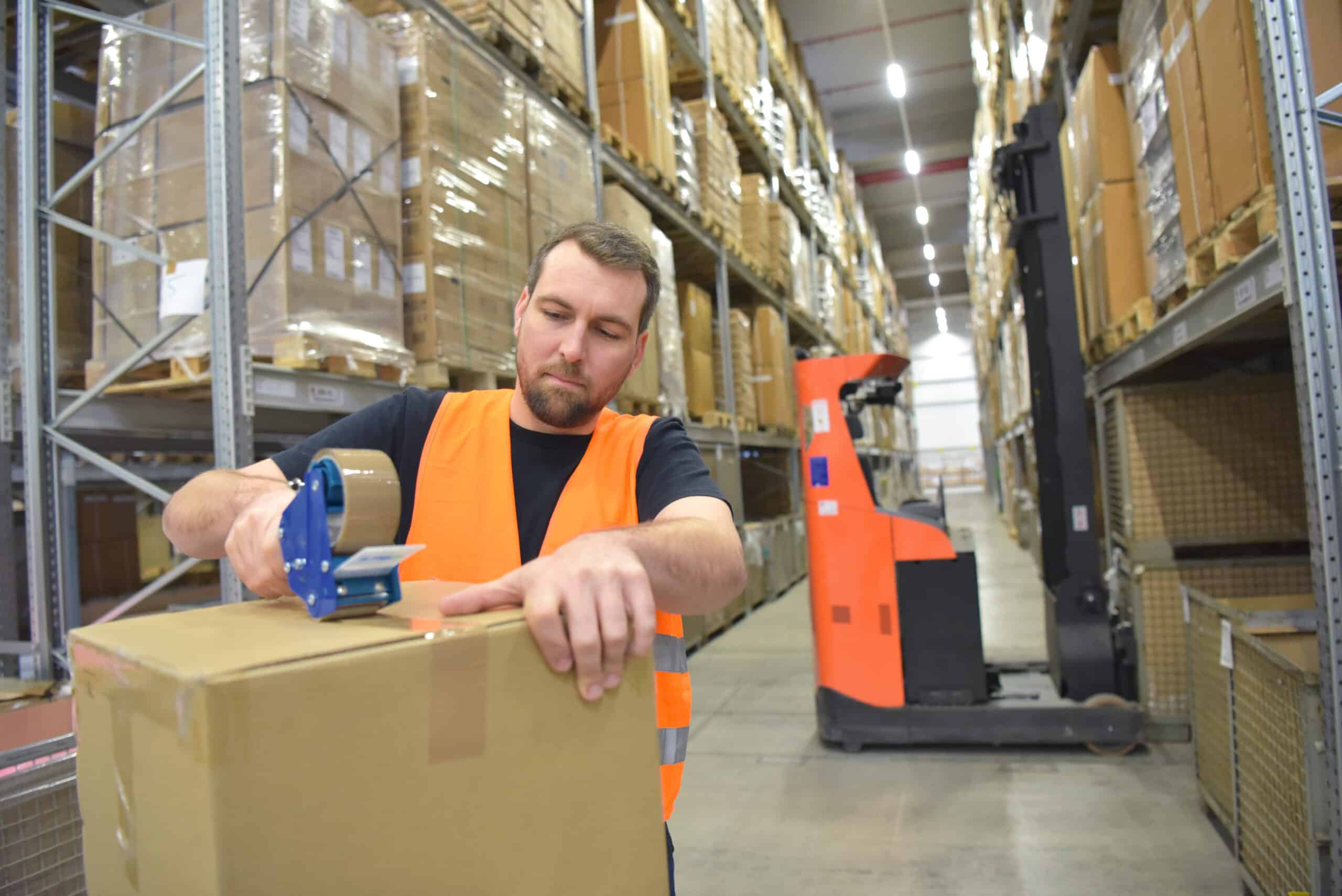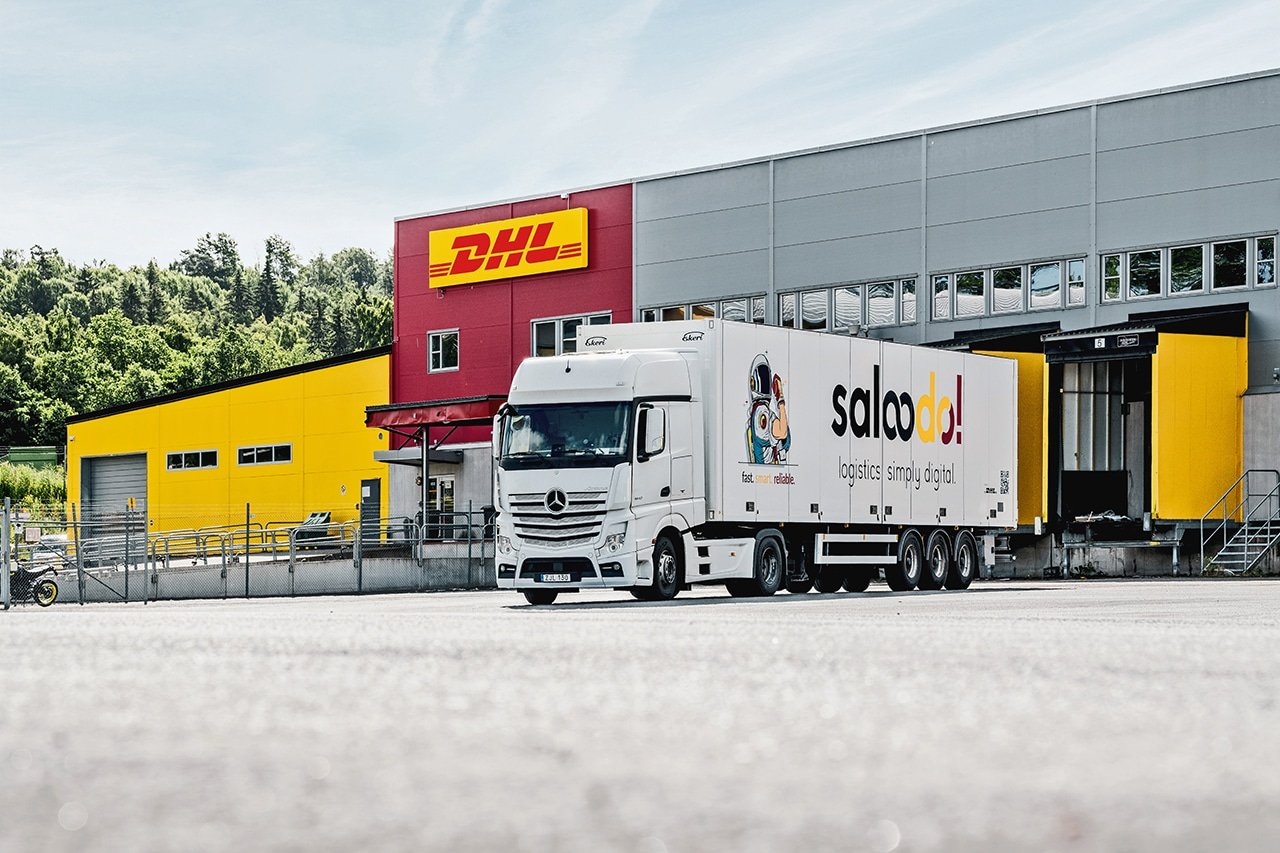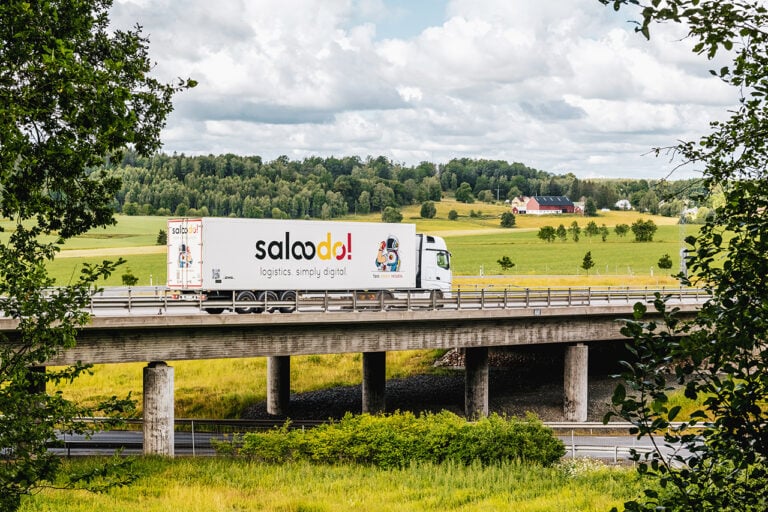Optimizing transportation
 Transportation of goods is a significant contributor to carbon emissions, especially road transportation. The high volume of vehicles on the road, combined with the long distances and heavy loads, results in a significant amount of greenhouse gas emissions. However, to reduce emissions, companies can optimize transportation by choosing the most fuel-efficient modes of transport, such as rail, and consolidating shipments to reduce the number of vehicles on the road. In addition, by using GPS and route optimization software, companies can determine the most efficient routes, avoid unnecessary empty runs, and generally make freight forwarders more efficient through digitalization. Using fuel-efficient vehicles can also help a transportation company reduce its environmental footprint. Companies can invest in newer, fuel-efficient trucks or retrofit older vehicles with aerodynamic features, low rolling resistance tires and other fuel-saving technologies.
Transportation of goods is a significant contributor to carbon emissions, especially road transportation. The high volume of vehicles on the road, combined with the long distances and heavy loads, results in a significant amount of greenhouse gas emissions. However, to reduce emissions, companies can optimize transportation by choosing the most fuel-efficient modes of transport, such as rail, and consolidating shipments to reduce the number of vehicles on the road. In addition, by using GPS and route optimization software, companies can determine the most efficient routes, avoid unnecessary empty runs, and generally make freight forwarders more efficient through digitalization. Using fuel-efficient vehicles can also help a transportation company reduce its environmental footprint. Companies can invest in newer, fuel-efficient trucks or retrofit older vehicles with aerodynamic features, low rolling resistance tires and other fuel-saving technologies.
Environmentally friendly driving
By encouraging their drivers to drive in an environmentally friendly manner, companies can significantly reduce fuel consumption and emissions. Eco-friendly driving includes driving at moderate speeds, reducing idling time, avoiding hard acceleration and braking, and maintaining proper tire pressure. Avoiding traffic congestion and other obstacles can also result in significant fuel savings.
Monitoring the carbon footprint
To track progress and identify areas for improvement, companies should monitor and reduce their carbon footprint. This includes measuring carbon emissions throughout the supply chain and identifying opportunities to reduce emissions, such as by improving energy efficiency, shortening transportation distances, or using renewable energy sources.
Using renewable energy and alternative fuels
Environmental impacts can also be reduced by using renewable energy sources such as solar or wind power. Installing solar panels on the roof of a company’s warehouse or offices can help generate electricity for electric truck charging stations. Fuels such as electricity or even Bio-natural gas (CNG) and Bio-liquefied natural gas (LNG) have lower emissions of carbon and other pollutants than traditional diesel.
Reducing waste and using environmentally friendly packaging
 The production of packaging and other materials can generate significant amounts of waste that may not be recyclable or biodegradable. This waste can have a significant impact on the environment, including pollution and depletion of natural resources.
The production of packaging and other materials can generate significant amounts of waste that may not be recyclable or biodegradable. This waste can have a significant impact on the environment, including pollution and depletion of natural resources.
Packaging is thus another major source of waste and environmental impact in supply chain management, logistics and freight forwarding. Companies can reduce packaging waste by using recyclable or biodegradable materials and optimizing packaging design to reduce the amount of material needed so that packaging is more efficient and lightweight.
Partnerships with sustainable suppliers
To truly reduce environmental impact, companies must also promote sustainability throughout their supply chain. Trucking companies can partner with suppliers that emphasize sustainability, such as those that use renewable energy, reduce waste, select environmentally friendly products and materials, and generally prioritize environmental stewardship. This can help reduce the environmental impact of the entire supply chain.
Mindful land use
The construction of warehouses, distribution centers and other facilities can have a significant impact on land use. In areas where land is scarce, the construction of such facilities can lead to deforestation, habitat destruction, and other environmental problems.
Introducing environmentally friendly warehousing
Warehouses can be a significant source of energy consumption and greenhouse gas emissions. To reduce these impacts, companies can adopt environmentally friendly warehousing practices, such as energy-efficient lighting, heating, and cooling systems; optimized warehouse layouts to shorten transportation distances; and the use of renewable energy sources such as solar panels.
Saloodo! – the digital platform focused on sustainability
 By implementing these strategies, companies can reduce their environmental impact in supply chain management, logistics, and freight forwarding, while improving operational efficiency, reducing costs, and creating a better, cleaner, more sustainable future for us all. Achieving sustainability in these areas is an ongoing process, however, and companies must constantly innovate and improve their practices to stay ahead of the curve.
By implementing these strategies, companies can reduce their environmental impact in supply chain management, logistics, and freight forwarding, while improving operational efficiency, reducing costs, and creating a better, cleaner, more sustainable future for us all. Achieving sustainability in these areas is an ongoing process, however, and companies must constantly innovate and improve their practices to stay ahead of the curve.
At Saloodo! we pay attention to reducing environmental impacts in supply chain management and freight transportation. As a digital freight platform connecting shippers and carriers around the world, we actively reduce empty miles, which helps reduce carbon emissions and improve efficiency. Through the use of digital technology, we help companies adopt more sustainable practices and reduce their environmental impact.









